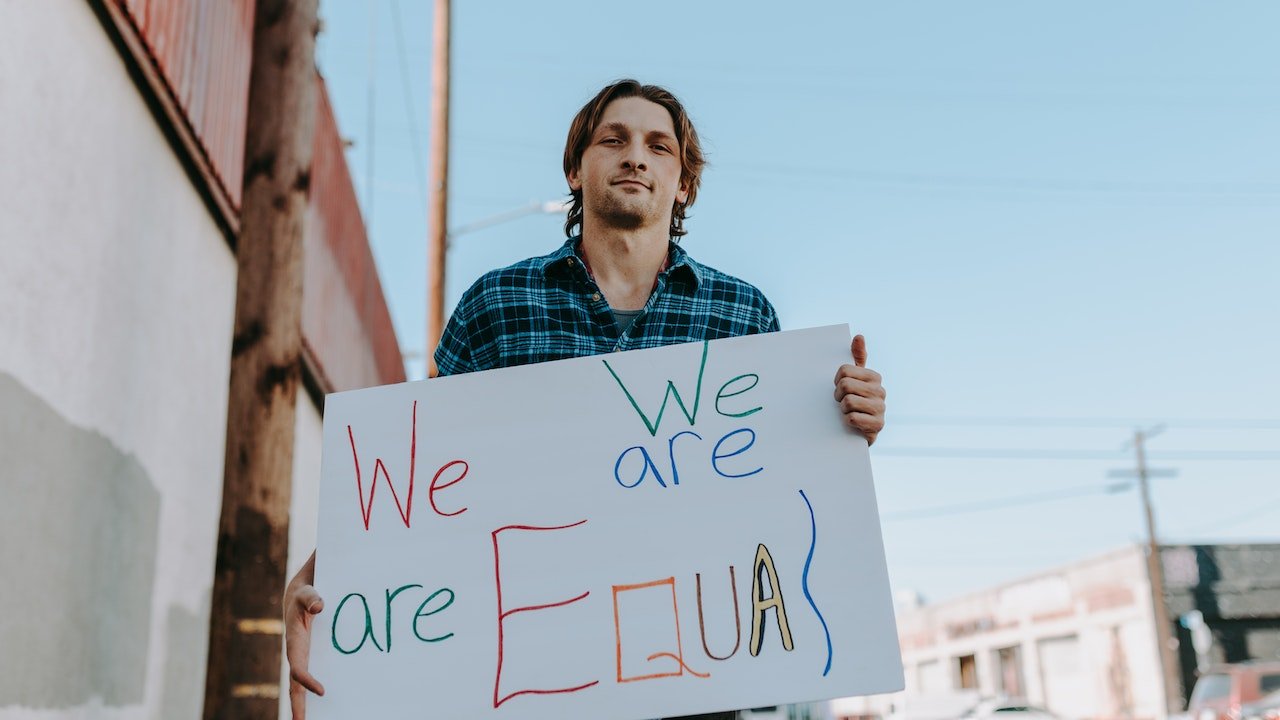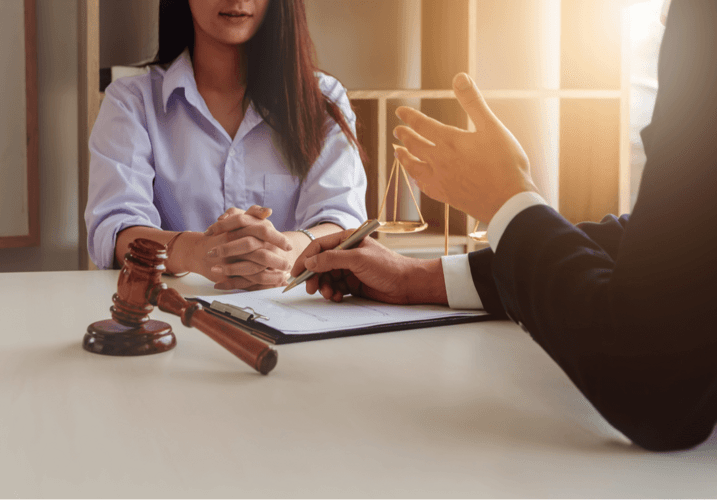Civil Rights Violations: How to Seek Justice in 2024
Civil rights violations: How to seek justice in 2024. Discover the legal steps to protect your rights and get justice.

In 2024, civil rights breaches are still a major problem that impact a great number of people in several spheres of life. These transgressions have serious social and personal ramifications and threaten the foundational ideals of justice and equality. It is crucial to recognise and respond to civil rights violations in this day and age, when activism and awareness raising are more important than ever. This article offers a thorough how-to guide that will assist you in navigating the difficult terrain of pursuing justice when your civil rights have been violated.
Fighting prejudice and injustice requires an understanding of civil rights and the legal safeguards they provide. Although civil rights have come a long way, from historical struggles to contemporary legislative frameworks, the fight for true equality is still ongoing. The purpose of this handbook is to provide you with the information and resources you need to properly pursue justice and defend your rights. This article will assist you in understanding your rights and the actions you can take to safeguard them, whether you are dealing with voting rights difficulties, encountering misbehaviour by the police, or confronting discrimination at work.
Civil Rights Violations
Definition of Civil Rights
The term “civil rights” refers to people’s ability to live in a world free from discrimination and unjust treatment in a variety of contexts, such as the workplace, classroom, and home. These legally protected rights are meant to shield people against prejudice on the basis of national origin, gender, age, race, and other factors.
Historical Context of Civil Rights Movements
The history of the civil rights movement is filled with important movements and turning points. The Civil Rights Movement of the 1950s and 60s, spearheaded by individuals like Malcolm X, Rosa Parks, and Martin Luther King Jr., was essential in combating racial discrimination and segregation in the US. These campaigns paved the way for continued activism and resulted in important legislative reforms.
Key Civil Rights Legislation
A number of historic laws have been passed to safeguard civil rights. The landmark laws that forbid discrimination and guarantee equal rights for all citizens are the Civil Rights Act of 1964, the Voting Rights Act of 1965, and the Fair Housing Act of 1968.
Common Types of Civil Rights Violations
Discrimination in Employment
Discrimination in the workplace can take many different forms, such as wrongful termination, harassment, unfair hiring practices, and unequal remuneration. Laws that shield employees from discrimination on the basis of race, gender, age, handicap, and other grounds are broken by these acts.
Educational Inequities
Educational inequities, including unequal access to quality education and resources, disproportionately affect students from marginalized communities. This can lead to long-term disparities in educational outcomes and opportunities.
Identifying a Civil Rights Violation
Recognizing Discriminatory Practices
Recognizing civil rights violations is the first step in seeking justice. Discriminatory practices can be overt or subtle, making it essential to be aware of your rights and how they might be violated.
Understanding Your Rights
Educating yourself about your civil rights is crucial. Familiarize yourself with the laws that protect you and understand what constitutes a violation.
Gathering Evidence of Violations
Documentation is key in proving a civil rights violation. Keep detailed records of incidents, including dates, times, locations, and any witnesses. Collect any physical evidence, such as emails, photographs, or video recordings.
Steps to Take When Facing a Civil Rights Violation
Documenting the Incident
Thoroughly document any incidents of civil rights violations. Detailed records can significantly strengthen your case if you decide to pursue legal action.
Reporting to Authorities
Report violations to the appropriate authorities, such as the Equal Employment Opportunity Commission (EEOC) for workplace discrimination or the Department of Justice for other civil rights issues.
Seeking Legal Counsel
Consulting with a lawyer who specializes in civil rights can provide invaluable guidance. They can help you understand your rights, evaluate your case, and navigate the legal process.
Filing a Complaint
Filing a formal complaint with the relevant authorities or in court is often necessary to pursue justice. Your lawyer can assist you in preparing and submitting the required documents.
Role of Civil Rights Organizations
Support and Resources Available
Civil rights organizations offer support and resources to individuals facing violations. They can provide legal assistance, advocacy, and education on your rights.
How to Contact and Collaborate with These Organizations
Reach out to civil rights organizations, such as the NAACP, ACLU, or local advocacy groups. They can offer guidance, support, and potentially take on your case.
Legal Remedies and Court Proceedings
Understanding Your Legal Options
There are various legal remedies available for civil rights violations, including filing lawsuits, seeking injunctions, and pursuing settlements.
The Process of Filing a Lawsuit
Filing a lawsuit involves several steps, including filing a complaint, discovery, trial, and potentially appeals. Understanding this process can help you prepare for what lies ahead.
Potential Outcomes and Remedies
Possible outcomes of civil rights litigation include monetary compensation, policy changes, and punitive damages. Each case is unique, and outcomes will vary.
Challenges in Seeking Justice
Common Obstacles and Barriers
Seeking justice for civil rights violations can be challenging. Common obstacles include lack of evidence, legal complexities, and potential backlash.
Navigating the Legal System
The legal system can be daunting. Having a knowledgeable attorney and support network can help you navigate the process more effectively.
Dealing with Retaliation and Intimidation
Retaliation and intimidation are serious concerns. It’s important to document any retaliatory actions and report them to the appropriate authorities.
Case Studies of Successful Civil Rights Litigation
Landmark Cases and Their Impact
Landmark cases, such as Brown v. Board of Education and Roe v. Wade, have significantly impacted civil rights law and set important precedents.
Lessons Learned from Past Cases
Analyzing past cases can provide valuable insights into effective strategies and potential pitfalls in civil rights violations litigation.
Advocacy and Community Support
Building a Support Network
Building a strong support network is crucial. Friends, family, and community organizations can provide emotional and practical support.
Role of Community Activism
Community activism plays a vital role in promoting civil rights violations and advocating for change. Joining or supporting activist groups can amplify your efforts.
How to Advocate for Change
Advocating for change involves raising awareness, lobbying for policy changes, and supporting initiatives that promote civil rights.
Staying Informed and Educated
Keeping Up with Current Events
Stay informed about current events related tov. This awareness can help you recognize violations and stay engaged in advocacy efforts.
Resources for Ongoing Education
There are numerous resources available for ongoing education on civil rights violations, including books, online courses, and seminars.
Importance of Awareness
Awareness is key to preventing and addressing civil rights violations. Educating yourself and others can create a more just society.
Read More: The Marriage Blueprint: Creating Your Ideal Partnership
Conclusion
In order to address civil rights violations, one must be vigilant, tenacious, and dedicated to justice. It is critical that we continue to be aware, aggressive, and supportive of initiatives to protect civil rights for all people as we navigate 2024 and beyond. Through the process of recording events, obtaining legal advice, mobilising support from the community, and pushing for structural adjustments, we can all work together to create a society that values justice and equality. Every individual’s efforts in the battle against civil rights abuses lead to a future that is more egalitarian and just. Recall that advocating for your rights not only keeps you safe but also fortifies our group’s determination to create a society in which everyone is accorded respect and decency.
Recall that there are options and assistance available if you or someone you know is experiencing a civil rights violation. Support networks, ranging from community advocacy to legal counsel and civil rights organisations, are available to help you pursue justice. Together, we can keep moving forward in the direction of a society in which all people are free from injustice and prejudice and where civil rights are respected.
FAQs
What Should I Do If I Experience a Civil Rights Violation?
Document the incident, report it to the relevant authorities, seek legal counsel, and consider contacting civil rights organizations for support.
How Can I Support Others Facing Civil Rights Violations?
Offer emotional support, help them gather evidence, connect them with resources, and advocate for their rights.
What Are the Signs of a Civil Rights Violation?
Signs include discriminatory practices, harassment, denial of services or opportunities, and any actions that treat individuals unfairly based on protected characteristics.
Are There Free Legal Resources available?
Yes, many organizations and government agencies provide free legal assistance for individuals facing civil rights violations.
How Can Technology Help in Fighting Civil Rights Violations?
Technology can help by providing platforms for reporting violations, raising awareness through social media, and offering digital resources for legal assistance.











